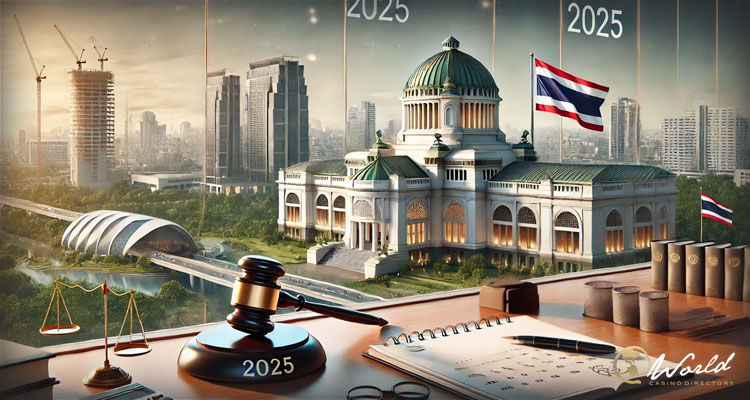The Thai government is pushing forward with plans to legalize casinos through an entertainment complex bill, with officials optimistic about its approval by mid-2025. Secretary-General Prommin Lertsuridej, cited by Inside Asian Gaming, revealed that the legislation is expected to pass through both chambers of parliament next year. “The law should be passed in six months from now at the earliest, so it should be next year to start,” he stated.
The proposed bill is a significant step for Thailand as it seeks to establish itself as a key player in the global gaming market. If implemented, the law would pave the way for integrated resorts (IRs) that combine casino gaming with entertainment, retail, and hospitality services.
Progress Toward Approval
Currently awaiting Cabinet approval, the draft bill is expected to be submitted to the House of Representatives before proceeding to the Senate. Each chamber typically requires several months to complete the three readings necessary for legislation to pass. Once approved, further administrative steps will be needed before casinos can officially open their doors.
According to government sources, the bill proposes a public-private partnership model, where licensed operators will collaborate with the Thai government to develop large-scale entertainment venues. Companies wishing to operate these venues must be Thai-registered and hold a minimum paid-up capital of THB10 billion (approximately $286 million).
Licenses would initially cost THB5 billion ($148 million) for 30 years, with renewal fees set at THB1 billion ($30 million) annually. Additional details, such as tax rates and specific regulations, will be determined by a committee led by the Prime Minister.
Potential Economic Impact
The introduction of casinos is seen as a transformative opportunity for Thailand’s tourism and gaming sectors. Analysts from Citigroup project that gross gaming revenue (GGR) in Thailand could reach $9.1 billion, placing it as the world’s third-largest gaming market behind Macau and Las Vegas.
The bill has already garnered interest from major global operators such as Las Vegas Sands, MGM Resorts International, and Genting Singapore. MGM, for instance, has indicated that any investment in Thailand would likely be pursued through its Macau subsidiary, MGM China. Prommin noted that the government has been approached by numerous high-profile investors, emphasizing their eagerness to participate. “So many people have tried to talk with us,” he remarked.
Proposed Locations and Requirements
Under the draft legislation, each entertainment complex must include a minimum of four complementary businesses, such as department stores, hotels, amusement parks, restaurants, or nightlife venues, alongside the casino itself. Additionally, gaming areas are capped at 5% of the total project area to ensure the broader appeal of these developments.
While the exact number of licenses and their locations are yet to be finalized, preliminary reports suggest that five licenses may be issued. Popular tourist destinations such as Bangkok, Pattaya, Chiang Mai, and Phuket are expected to host these complexes, with two potentially located in the capital city.
Positioning Thailand as a Global Gaming Hub
If successful, Thailand’s casino legislation could redefine the Southeast Asian gaming landscape. The country’s strategic location, combined with its established reputation as a tourist hotspot, positions it to attract high-spending visitors and rival other regional gaming hubs like Singapore.
The proposed bill also serves as a hedge for international operators seeking alternatives to Macau, where uncertain regulatory prospects continue to affect the gaming industry. Prominent companies, including Galaxy Entertainment Group and MGM Resorts, have expressed interest in leveraging Thailand’s potential to diversify their portfolios.


